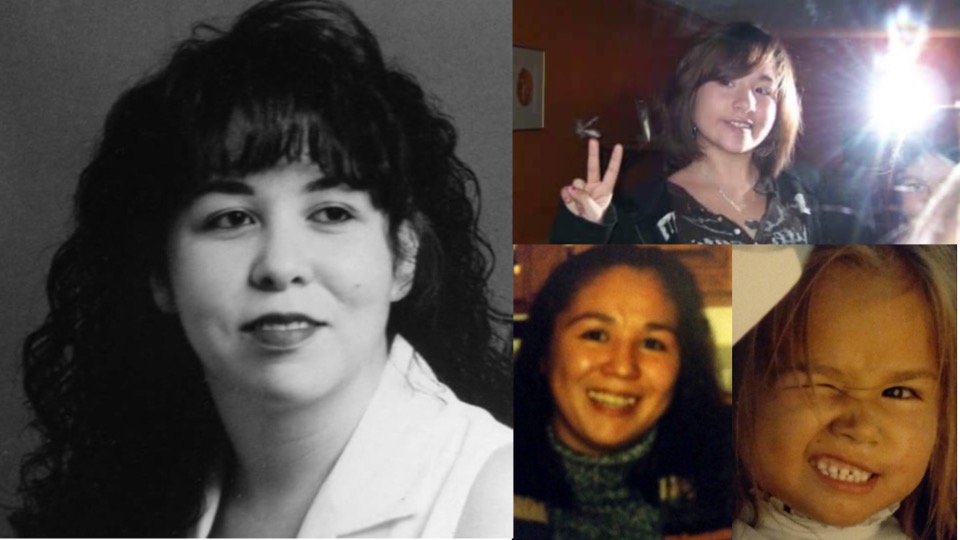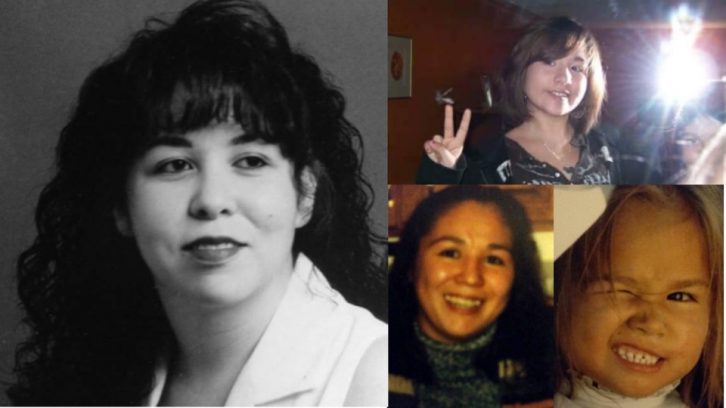MMIW
Remembering the women from the Maritimes
An inquiry will look at the cases of missing and murdered Indigenous women and girls in Canada

caption
A collage of indigenous who have been murdered or gone missing in the Maritimes. Left: Rowena Sharpe, top right: Hilary Bonnell, Bottom right:
caption
These women were taken: Rowena Sharpe, left; Hilary Bonnell, top right; Michelle Marie Ginnish, bottom right.For lawyer, writer and Indigenous activist Patricia Doyle-Bedwell, Dec. 8, 2015, was a day filled with excitement and joy. She had just heard the news of the federal government’s plan to launch a national inquiry into missing and murdered Indigenous women and girls.
“I was very happy, I felt a lot of hope,” said Doyle-Bedwell.
Indigenous women’s groups across the country had been calling for an inquiry for years. Related stories
The unsettling truth is that Indigenous women make up 16 per cent of all murdered women on record. There are murder cases that have gone unsolved, and many women who have disappeared and never been found.
In 2014, RCMP identified 1,181 cases as missing and murdered Indigenous women, yet research conducted by the Native Women’s Association of Canada suggests that number could be as high as 4,000.
NWAC is a collective of 13 women’s organizations across Canada. These organizations have been compiling lists of missing and murdered since before the announcement of the inquiry.
‘Just as valid’
NWAC states that 89 per cent of cases are from the central and western regions of the country. The Atlantic provinces represent only two per cent of the documented cases, including several of high-profile cases.
Doyle-Bedwell says each missing and murdered Indigenous woman is as important as the next.
“Our cases are just as valid and just as compelling,” she said.
The Signal digital reporting class teamed up with Kukukwes, an independent Indigenous media news site, to produce several profiles on the missing and murdered Indigenous women from the Maritimes. We wanted to speak with their friends and relatives in the hope of learning their personal stories and struggles.
Denise Onebreath Mitchell from the Halifax Mi’kmaw Native Friendship Centre says she hopes these profiles will humanize the women and acknowledge the historic factors of racism, sexism and colonialism that they face.
“We need to learn about these women, as women,” said Mitchell, “as mothers and as daughters.”
To guide The Signal’s research, we used the list compiled by NWAC for the Maritimes.
Hart Perley works with the Indigenous Women’s Association of the Maliseet and Mi’kmaq Territories in New Brunswick, one of the 13 organizations included in NWAC. She says organizations compile these lists by going into the communities and speaking with people who may be able to identify unknown cases.
Perley says that Indigenous women’s groups across the Atlantic provinces are still gathering names of those missing and murdered.
‘Keep them informed’
August 2016 brought the announcement of the five commissioners who will lead the inquiry. None of these commissioners are from the Atlantic region.
Doyle-Bedwell says her excitement faded.
“I thought ‘oh gosh’ are we going to be forgotten again within this process?’” she said.
Mitchell says families of the missing and murdered have told her they want to be involved in and informed of all aspects of the inquiry.
“The families started this fight for their loved ones,” said Mitchell. “The least our commissioners can do is keep them informed.”
The Government of Canada inquiry webpage states that it is a mandate of the commission to provide opportunities for family members and communities to share their experiences.
As of now, Mitchell says there has been little communication between the commission and the families.
The commission’s media relations officer, Kelly Reid, says they are in the process of securing an office space and staff in Vancouver, as well as tending to other foundational tasks.
The inquiry is expected to start in the new year, yet no date has been announced.
